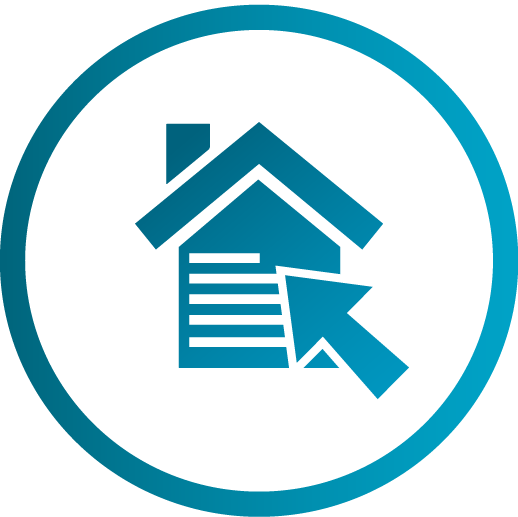5 Reasons why financial institutions urgently require Intelligent Paper Handling
- banking technology and large information are high on the schedule for financial services C-suites.
As huge data becomes a fact of life for both customers as well as financial institutions, it presents brand-new avenues for developing revenue streams. Banking leaders recognise that the capability to extract as well as use information held within their business operations - and to automate record processes in their value chain, give significant competitive advantage.
In several organisations, there are barriers obstructing those possibilities. In some cases it's budgetary constraints; various other times, it's simply a lack of support and/or understanding throughout the business.
Here are 5 pushing reasons to re-prioritise smart file handling (IDP) in your electronic improvement program, and knock down those obstacles one by one.

1. Big information in financial is a major, unmissable opportunity
As opposition financial institutions remain to disrupt the economic services landscape, conventional financial institutions have one fantastic advantage-- the substantial amounts of information they hold connecting to their consumer bases and also sectors. Loan applications alone generate mountains of data to please back-end processes. This information isn't constantly in a kind that can be accessed; neither is it verified for its stability.
Being able to automatically translate customer files for intelligent insights opens important data for banks, which can then be fed into other locations of the business, or right into applications. From there, banks can establish products to fulfill the demands of retail, SME as well as industrial customers and also dissolve their discomfort points; they can enhance the consumer experience and also enable monetary health and wellbeing discussions in between customers and the market.
Information powers personalisation, opening up interaction with customers regarding items at the correct time, in a manner that makes good sense to individuals. Consumer data comes to be a source to form technique.
shutterstock_1062915296 _ -1.
IDP makes use of a set of modern technologies - from artificial intelligence (AI) and also artificial intelligence (ML) to optical character recognition ( OPTICAL CHARACTER RECOGNITION) and also natural language processing (NLP). These enable financial institutions to record, identify, and also remove information stored in papers, turning disorganized as well as semi-structured information into a organized style.

Intelligent automation modern technology can after that be applied to the drawn out information for boosted validation and also to automatically enter it right into existing applications. Advanced analytics allow for reporting and understandings in real time from several sources, so organisations can eat, evaluate and also execute on the understandings, feeding right into the financial institution's value proposal.
2. The COVID result: new assumptions from end consumers.
With social distancing restrictions, lockdowns as well as a mass work-from-home motion in numerous markets, we've seen a revolution in consumer involvement.
It started with a mass flight to digital channels throughout both retail and industrial financial, accompanied by escalating download prices for applications, particularly in the very early months of the pandemic.
" The financial institutions are now reprioritising their digital makeover programs," states Sandstone Innovation chief executive officer Michael Phillipou.SAN10190 MIC-3.
" 18 months back, a financial institution might have had a roadmap of three years of programs they were going to be addressing. Now they know they need to increase that financial investment, reprioritise several of those programs, as well as bring in new concerns to ensure they have actually got market-leading electronic value propositions." "This rate and also agility is something we've never ever seen before," Phillipou states.
Overnight, digital options have actually been established to meet customers' requirement for security and benefit, as well as cashless repayments and also global repayments have became necessary.
" We likewise all of a sudden saw a need for pleasure principle," says Phillipou. "Getting answers swiftly as well as being able to communicate with your bank, either by self solution or by a lender on the other side, are now expected as a matter of course.".
Keep in mind that in an atmosphere of raising cybersecurity breaches, new financial innovation requires to be balanced with compliance, details safety and security as well as danger management. "If repayment systems were to go down, that would certainly have a catastrophic result financially and destroy count on establishments," Phillipou claims.
3. Digital borrowing options will certainly always have heavy compliance responsibilities.
Banks have a traditional profile and rightly so. They have considerable as well as ever-changing governing responsibilities to abide by, and also layers of stakeholder approvals to secure prior to onboarding any kind of brand-new abilities.
" Thus, recognized banks generally aren't innovation leaders," Phillipou claims.
However there is a huge opportunity for financial institutions to improve their ability to satisfy regulatory conformity promptly and also easily-- via automated IDP items like Sandstone's DiVA (Digital Intelligent Confirmation Assistant) innovation.
Queen offers clients verified and auditable regulative compliance through an integrated policies engine with no code configuration required. And also because queen is Software as a Service, it's rapid to apply. A bank might understandably set up IDP across their business in a issue of weeks.
" This is what financial technology will certainly look like across the board in the future," Phillipou claims.
" Cloud indigenous, cloud based, API first, containerised, with microservices-- every one of these together make it possible for quick deployment and fast realisation of benefits. Being consumption based, the product can be turned on as well as off quickly.".
4. The drive for performance gains across the board.
According to Phillipou, from the financial institution's viewpoint, every board is being asked to do three things. The first is to increase their return on resources, and that suggests growing their assets, their lending books and liability publications.
The 2nd: they require to do more with much less, by lowering their cost-to-income proportion. And ultimately, number 3 is to follow all guidelines and avoid penalties.
" When it come to the 2nd factor, this is absolutely an effectiveness play," Phillipou states. "The best digital borrowing solution will result in minimized time to refine loans, and that's the main usage case our customers are utilizing our capability for. Intelligent paper handling is a key component of that.".
With smart automation, banks can begin to issue loans out to consumers at a much higher rate than they might have or else. Personal information can be redacted, papers can be turned and analyzed as well as indexed. And with even more precision in the method they process information, and little or no re-keying of information, the error price with customers is much lower.
shutterstock_745210543_PNG-1.
As the procedure ends up being much more reliable for organisations, they can redeploy those back-office sources into various other locations where they can obtain a higher impact. It's about cost savings for customers and also a better sandstone.com.au/lendfast customer experience with fewer pain points.
Eventually banks are working towards the suggestion of right through processing (STP): entirely electronic handling of monetary transactions from the factor of initial ' bargain' to last negotiation, entailing no manual intervention. The goal is to accomplish far better speed, accuracy, dependability as well as scalability.
5. The open banking future relies on excellent, large data in banking.
The staged introduction of open banking and also the opening of APIs to third parties has actually been another incentive for adjustment, helping shift industry emphasis onto the relevance of information honesty and also accessibility.
Banks need to be able to seize the opportunities this presents. That consists of opening ' markets' to aid develop out their very own product set as well as consider brand-new income streams for business. These might include anything from re-selling to monetary understandings for retail and also service financial.
As Phillipou claims, "From our side, as a technology companion, we're seeing far more requests for options to satisfy these requirements today.".
There is no doubt that financial institutions must be information driven if they intend to supply better monetary product or services to meet clients' requirements as well as expectations; and if they intend to benefit from possibilities as they occur.
At the same time, they require to drive efficiency and efficiencies across business, while decreasing operational risk. The time has pertained to adjust as well as do it promptly.